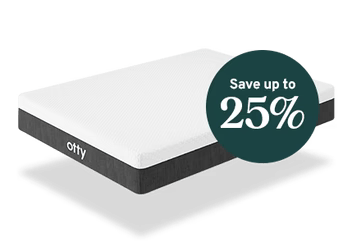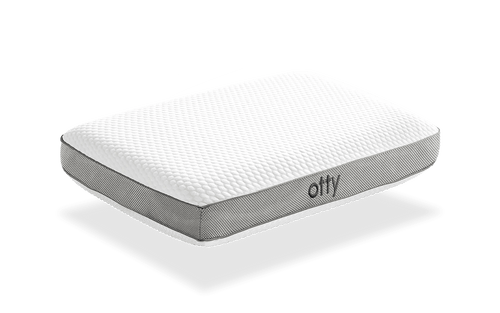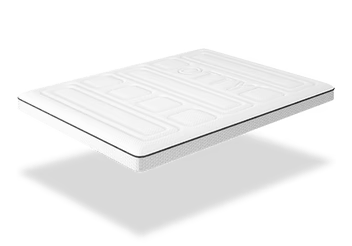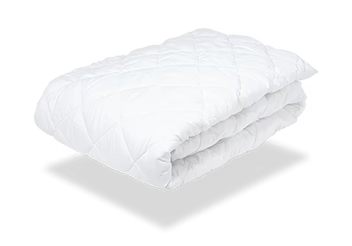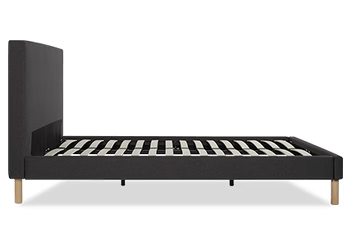
Ever wondered how much your mattress weighs?
The weight of a mattress is a crucial factor that often goes unnoticed when shopping for a new bed. It's not just about the comfort, support, and durability, but also about the practical implications that the weight of a mattress can have.
Why Does Mattress Weight Matter?
You might think that all mattresses weigh the same but in reality, their weight can significantly vary. The overall weight can influence a multitude of factors including comfort, support, and durability.
A heavy mattress often contains denser materials that may offer better supportive qualities. On the other hand, a light mattress might not be as supportive but it can provide a plushier feel.
It's not just the physical characteristics of the mattress that are impacted by the weight. The average weight of a mattress can also affect the cost. As you might have guessed, heavier mattresses tend to be pricier due to the higher volume of material used in its construction.
The Impact of Mattress Weight on Transportation and Setup
A heavy mattress might seem daunting to transport and can make the installation process significantly challenging. If you are managing the task alone, a heavy mattress can be hard to manoeuvre into position or turn when needed.
On the other hand, a light mattress could be more manageable, particularly if you move home frequently or have narrow staircases and entrances. The overall weight of the mattress could impact the number of people required for transportation, the type of vehicle needed for transport, and even the type of bed frame that can support it.
It's also important to remember that a light mattress doesn't automatically mean lower quality, nor does a heavy mattress guarantee higher durability.
What Makes A Mattress Light or Heavy?
When it comes to understanding the weight of a mattress, there are several factors at play. These factors can significantly influence the overall weight, making it crucial to consider them when shopping for a new mattress.
Materials
Memory foam mattresses are usually heavier due to the density of the foam.
As a combination of innerspring and foam layers, hybrid mattresses can be quite heavy. The existence of metal coils alongside foam layers contributes to their weight.
On the lighter end of the scale are air mattresses, which are typically made from lightweight PVC or similar materials.
Latex Mattresses generally heftier as latex is a substantial and dense material, especially when used in large quantities.
Innerspring mattresses can vary in weight depending on the gauge of the coils used but are usually lighter than varieties like memory foam and latex due to the air space within the coils.
Quality and Durability of the Mattress
The quality and durability of a mattress play a significant role in its weight.
A mattress crafted with high-grade materials to withstand the test of time is often heavier than its less durable counterparts. These mattresses are built with robust materials that not only increase their longevity but also lead to a noticeable weight difference.
This principle is common across all types of mattresses, whether memory foam, hybrid mattress, or the traditional foam mattress. The denser materials used in premium mattresses contribute considerably to their weight. On the flip side, the light types of mattresses tend to use less dense material and hence tend to weigh less.
Comparing the Weight of Different Mattress Types
Memory Foam Mattresses
Memory foam mattresses top the comparison chart of mattress weights because of their dense composition.
A typical memory foam mattress is designed to mould to your body shape, creating a customised, snug fit. This feature, paired with its dense foam materials, results in a heavier mattress when you compare it to other types.
Hybrid Mattresses
The weight of a hybrid mattress is usually on the heavier side. T
The weight comes from the number of materials and layers incorporated within.
They pack a coil spring support base and a 2-inch comfort layer at the minimum, making them quite dense. This comfort layer may even include latex foam or polyurethane foam, adding to the mattress' weight.
A typical queen-sized hybrid mattress can weigh anywhere between 45 to 80 kilograms.
The coil gauge, coil count, foam layer's thickness and density, and inclusion of additional materials like latex or gel-infused foam affect the overall mass of the mattress.
Latex Mattresses
Ranging from 30kg to 90kg based on their size, latex mattresses have substantial weight due to their high density and resilience that come from natural latex.
Factors such as latex type - natural or synthetic, and overall thickness can impact the weight of the mattress. Natural latex, being denser and more resilient, typically makes the mattress heavier.
Innerspring Mattresses
At their core, innerspring mattresses contain steel coils that serve as a robust, supportive base, topped off with a layer of foam or fibre-fill for that added comfort.
Interestingly, it's the coil gauge (thickness) and the number of coils in an innerspring mattress that determine its weight. So while the open support structure makes the bed relatively easier to move, a higher coil count and thicker gauge can make the mattress heavier.
Air Mattresses
When it comes to transportability, air mattresses top the chart in any comparison of mattress weights.
Although air mattresses are the lightest type of mattress available, their weight can inflate with the inclusion of extra padding or comfort layers.
Does a Mattress Gain Weight Over Time?
While it's true that an old mattress can accumulate dust, sweat, and skin cells, the idea that this significantly increases its weight in pound is largely a myth.
However, it's important to note that the weight of a mattress can be influenced by various factors, including the density of the foam and how well it's maintained.
Factors That Can Affect Mattress Weight Over Time
Density of the Foam
Memory foam mattresses, in particular, can potentially increase in weight over time. This is mainly due to the high-density foam absorbing moisture and dust particles from the environment. However, note that the weight increase is likely to be marginal.
Usage and Wear
Regular use of a mattress can result in some weight gain. This is largely from accumulated dead skin cells, dust mites, and sweat seeping into the mattress material. But again, this rarely accounts for a significant weight gain.
Structural Deterioration
Over time, your old mattress can experience structural changes. Fillings can become compact, leading to increased density but not necessarily translating into a profound weight gain.
Remember though, these factors are relatively minor and unlikely to prevent you from being able to move your mattress or support the mattress properly.
Summary And Key Takeaways
The weight of a mattress is a crucial factor to consider when purchasing a new one. It influences not only the ease of transportation and setup but also the overall comfort and durability of the mattress.
The type of material used, such as memory foam or latex, can significantly impact the weight of the mattress. So, it's essential to consider these factors when choosing a mattress that suits your needs and preferences.
